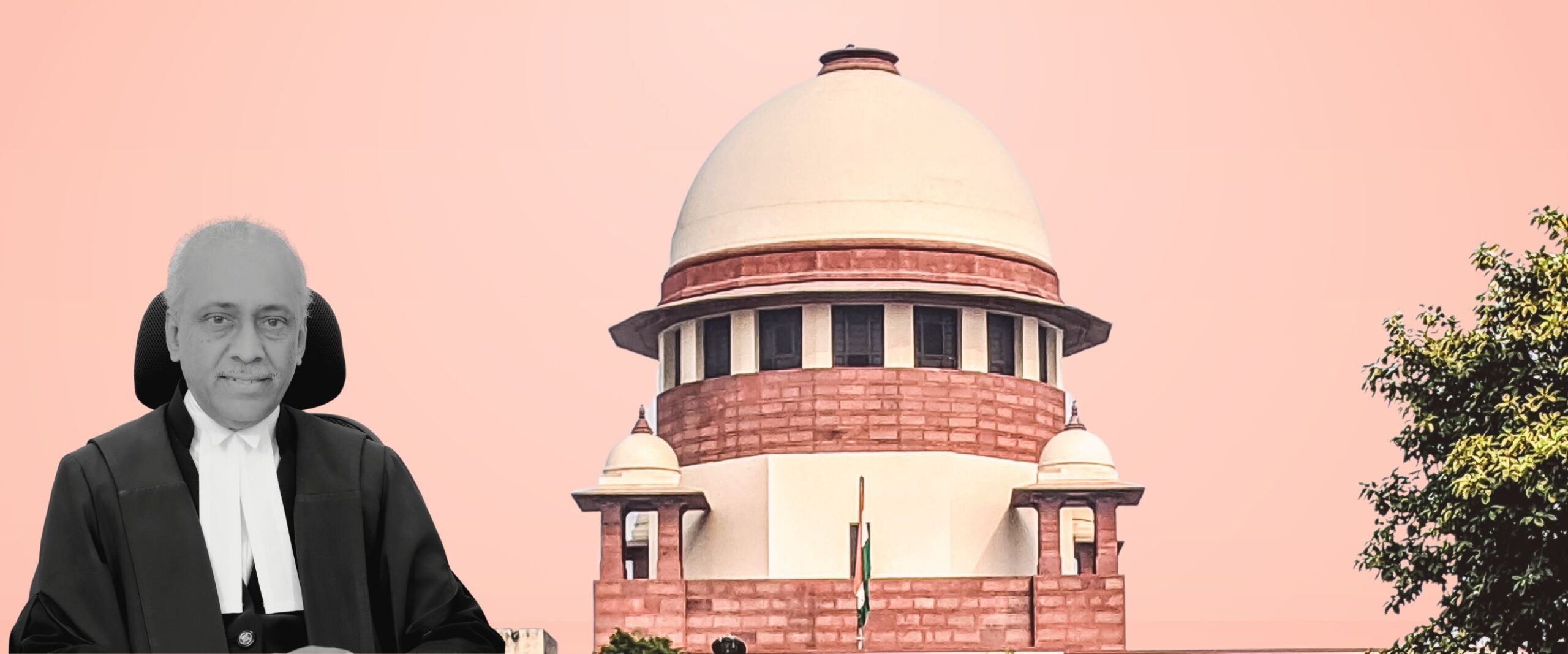Analysis
Justice V. Ramasubramanian’s Notable Judgements
Justice Ramasubramanian authored 102 judgements during his tenure at the Supreme Court, and was a part of leading Constitution Benches.

Justice V. Ramasubramanian will retire on June 29th, 2023, after a tenure of 3.75 years at the Supreme Court. During his tenure, he authored 102 judgements and was a part of 302 Benches*. Since 2022, he has been a part of four Constitution Benches. He authored a Judgement in one of them.
Freedom of Speech of Public Officials
On January 3rd, 2023, Justice Ramasubramanian held that the grounds to restrict freedom of speech under Article 19(2) are exhaustive. Writing the majority opinion in this Constitution Bench Judgement, he held that the current restrictions given under it are comprehensive and cover all necessary aspects.
The Judgement dealt with the clash of two fundamental rights—the right to liberty and the right to speech. Justice Ramasubramanian began the judgement explaining that the right to speech cannot be diluted if it is in conflict with the right to liberty of another person. However, he held that the right to liberty holds supreme importance over all other rights. This further means that the State has an obligation to protect the right to liberty of its citizens from acts committed by private individuals.
Another key issue was whether the Union Government is responsible for statements made by its Ministers. Justice Ramasubramanian held that the Union is not liable if the statement is made in a ‘personal capacity’. However, it is responsible for all statements made inside the Houses of Parliament or in the State legislative assemblies.
RBI Circular Prohibiting Trade in Cryptocurrency Set Aside
On April 6th, 2018, the Reserve Bank of India (RBI) issued a circular that imposed a ban on trading in cryptocurrencies, such as Bitcoin and Ethereum. The circular stated that entities regulated by the RBI were prohibited from ‘dealing with’ or ‘providing services’ to individuals or business entities involved in cryptocurrencies. The RBI justified this ban by highlighting the ‘associated risk’ that trading in virtual currencies could facilitate illegal transactions.
Justice Ramasubramanian authored the Judgement which set aside the circular. He emphasised that since cryptocurrencies were not officially banned in India, the RBI cannot prohibit transactions involving them. He reasoned that the RBI imposed disproportionate restrictions on entities and financial institutions that engaged in crypto trading. He pointed out that the RBI failed to demonstrate the adverse effects of cryptocurrencies.
Role of NCLT and NCLAT in Insolvency and Bankruptcy Code Proceedings
On December 3rd, 2019, Justice Ramasubramanian authored a significant Judgement regarding the jurisdiction of the National Company Law Tribunal (NCLT) and the National Company Law Appellate Tribunal (NCLAT) under the Insolvency and Bankruptcy Code, 2016 (IBC).
The Judgement addressed two key issues. First, whether the NCLT and NCLAT have the authority to investigate cases related to fraud in proceedings conducted under the IBC. Justice Ramasubramanian focused on the interpretation of Sections 65, 66, and 69 of the IBC, which deal with the initiation of proceedings to investigate fraud, fraudulent trading, and the punishment for fraud. On a collective reading of the provisions, he concluded that the NCLT possesses the necessary jurisdiction to examine fraud cases within the framework of an IBC.
The Second issue was whether a High Court can intervene in an order passed by the NCLT instead of the common practice of appealing through the NCLAT. Justice Ramasubramanian emphasised that the NCLT was established by a statute and has jurisdiction over specific types of proceedings. A High Court can intervene in an order passed by the NCLT if it is found to be a result of a wrongful exercise of that jurisdiction.
*based on data available as of June 27th, 2023